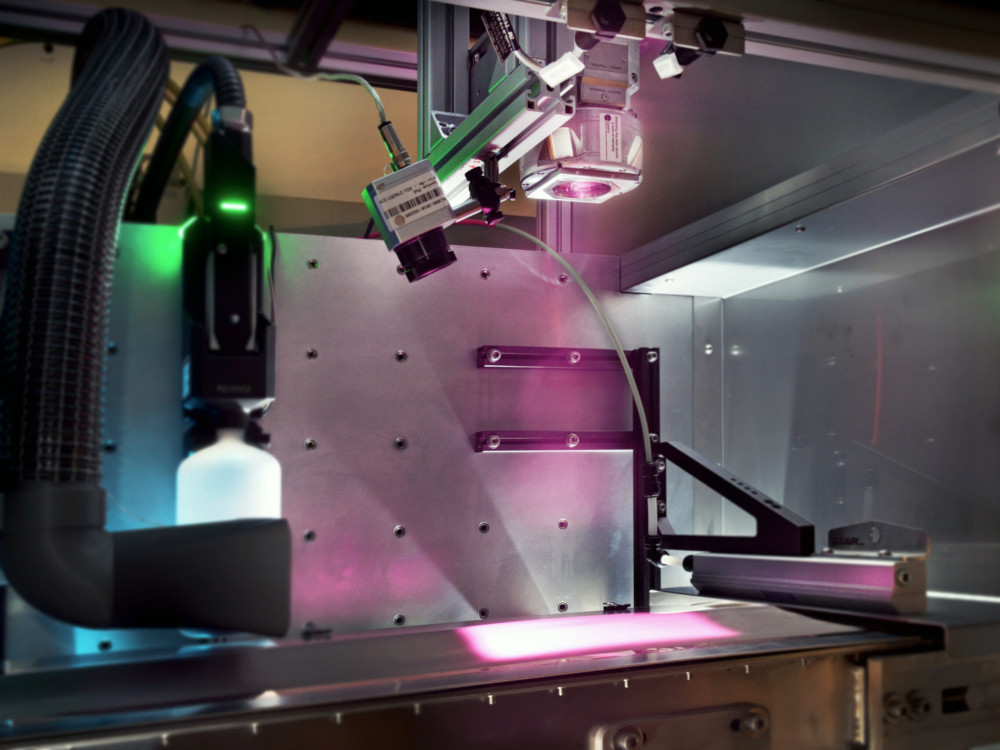
06 Feb Successful laser drying of roll-to-roll electrodes
For the first time, laser-dried anodes and LFP cathodes have been successfully produced in a roll-to-roll process, as reported by the partners of the IDEEL research project (Implementation of Laser Drying Processes for Economical & Ecological Lithium Ion Battery Production) led by Laserline. Based on industry-relevant electrode pastes, the PEM (Production Engineering of E-Mobility Components) chair at RWTH Aachen University was able to demonstrate processability of aqueous LFP (lithium ferro-phosphate) cathodes and anodes in the prototype system at eLab, the researchers reveal. In cooperation with the battery research center MEET (Münster Electrochemical Energy Technology), the quality properties could be evaluated and optimized electrode pastes developed.
Laser and hybrid drying
For the demonstration tests, a Laserline high-power diode laser with zoom optics was integrated into the film coating system to dry the active material with a homogeneous laser spot. The temperature distribution on the electrode was monitored using a thermographic camera from Optris. According to the research partners, the proof-of-concept was carried out at a production line speed of 1.3 m/min, with a successful demonstration of both laser-only drying and hybrid drying with laser and downstream convection oven.
Based on the initial results, the manufacturing process using laser-only drying is expected to reduce energy consumption in electrode manufacturing by up to 85 %. The investigation of the hybrid process is also said to have shown that, compared to pure convection drying, twice the drying speed can be achieved with an additional laser station. Comparative benchmark analyses of the quality properties of convection- and laser-dried electrodes, such as residual moisture of the active material or adhesion of the coating to the carrier film, are said to have confirmed this increase in productivity.
For new facilities and refittings
According to the scientists, the project results to date demonstrate that the process approach is not only suitable for new facilities, but also that existing convection ovens can be retrofitted with appropriate laser drying technology.
In the further course of the project, it is planned to scale up the production line speed to 10 m/min (Fraunhofer ILT) and, at the end of the project, to 30 m/min (Coatema Coating Machinery). To this end, Laserline says that it is currently developing optics to generate a large-area laser spot. Initial research results are also said to indicate that a reduction in system size by a factor of 10 will be possible in the future.
Source: www.laserline.de
Image: www.ilt.fraunhofer.de






